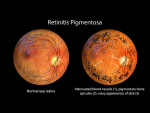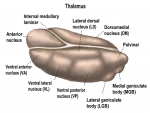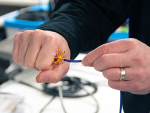Displaying items by tag: school of medicine
Participants between the ages of 18 and 60 who received peer coaching showed significant reduction in systolic blood pressure.
Tagged under
A modifier gene is one that changes the observable characteristics, called the phenotype, or molecular expression of other genes.
Tagged under
Tagged under
Clinical trial findings from the LATITUDE study show promise in long-acting HIV treatment for patients who have long struggled with daily HIV oral medications.
The program is designed specifically to treat women and address the distinct concerns and unique risk factors that women may experience.
Tagged under
A large nationwide study found that Black individuals carrying a genetic mutation in the TTN gene were at an increased risk of adverse clinical outcomes.
Tagged under
Results showed that African American veterans with PTSD had a higher risk of rehospitalization than those without PTSD. However, white veterans with PTSD did not have a significantly higher risk of rehospitalization post-stroke.
Tagged under
In the mouse brain, two neural pathways were discovered: The first is active during motivation; the second is active only at the termination of motivation. In humans, these pathways could underlie motivational dysfunctions present in various psychiatric conditions.
Tagged under
The award recognizes those in the medical community who have made monumental contributions to cancer prevention, control research and practice.
Tagged under
Pulsed-field ablation disrupts the cellular membranes of vein tissue, irreversibly preventing those membranes from conducting electricity. This protects the heart from the rapid impulses which can cause atrial fibrillation.
Tagged under
UAB researchers leverage data from the SPRINT trial to show that intensive control of blood pressure reduces troponin I levels and this decrease in troponin I levels is associated with reduced risk of cardiovascular disease.
Come together with members of the UAB community to raise money for student scholarships. This year’s race will be at Crestline Village in Mountain Brook.
Tagged under
Individuals in their 20s and 30s should be aware of the warning signs of colon cancer to know when to seek medical attention.
Alarmingly inadequate supply of blood, economic disparity and logistics among many factors playing a role in fueling shortage.
The program seeks to support and foster multidisciplinary collaborations, especially between UAB clinicians and basic and physician scientists.
Tagged under
Cooper recently won the Albert Lasker Award, known as “America’s Nobel Prize,” given to the living person considered to have made the greatest contribution to medical science.
Tagged under
Although living with his congenital heart defect has come with its challenges, Bill Wingate hopes he can encourage others with similar conditions.
Tagged under
These research areas — part of the Convergence Revolution — have the greatest potential of achieving tremendous impact on the field of medicine in the coming decades or century.
Multifidus stimulation is for patients with chronic, non-surgical low back pain who demonstrate impaired function in the muscles that stabilize the spine.



















